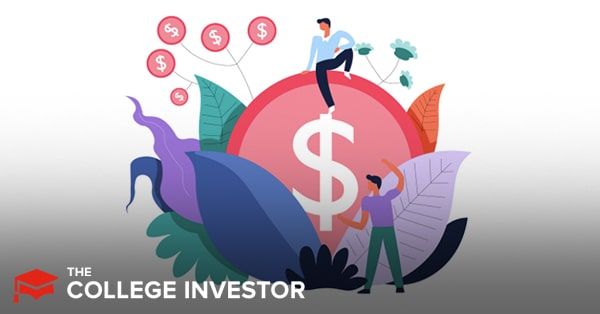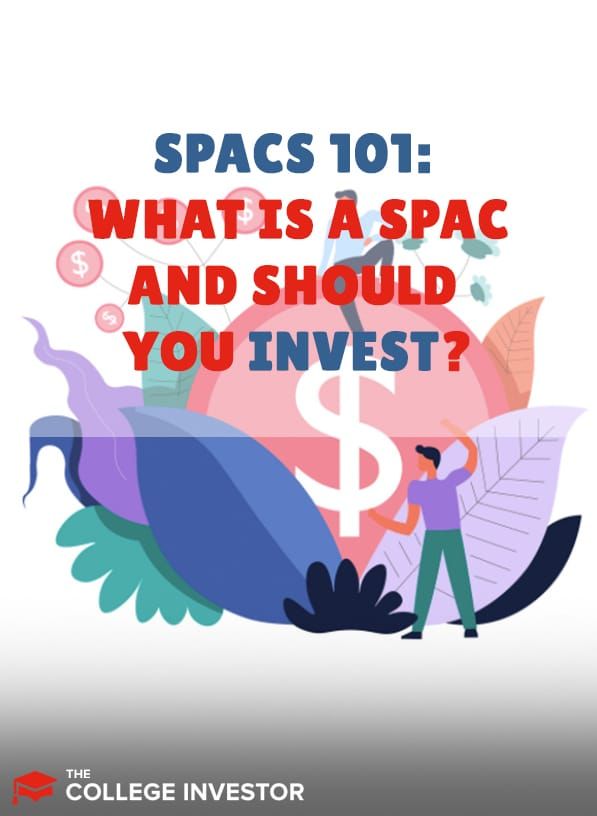
SPACs — they're all the rage right now in the financial world. Although they've been around since the 1990s, they’ve been gaining in demand recently as a means of bypassing the laborious traditional IPO route.
Go back to 2009 and you’ll find only one SPAC IPO. But Nasdaq reported that were 237 of them in 2020 (as of December 28, 2020), raising $79.87 billion in gross proceeds. That was nearly $13 billion more than traditional IPOs raised!
So, yes, SPACs are certainly on the uptrend on Wall Street. But wait — what exactly is a SPAC again? Keep reading to learn what you need to know about SPACs, how to invest in them, and whether or not you should.
What Is A SPAC?
SPAC stands for "Special Purchase Acquisition Company". They're also often referred to as "blank check companies". Basically, it pools investor funds together and holds them while it looks for investment opportunities. Investors may not know ahead of time what the opportunity will be. Hence the term "blank check."
Think of a SPAC as a shell company. It doesn’t do anything but take in investor funds. At some point, it goes public through an IPO. Then it has a certain period of time (typically less than two years) to find company that it will target for an acquisition and merger. The hope for investors is that the acquired company will produce strong returns.
The SPAC and acquired company combine into a publicly-traded company. Investors who remain with the company will see their shares rise and fall the same as the company’s publicly-traded shares.
A SPAC can’t sit on investor funds indefinitely. The maximum deadline to find an opportunity is two years, but the company's self-imposed deadline is often shorter. If it fails to find an opportunity before the deadline, investor funds are returned in proportion to the units they own.
Additionally, investors can vote to approve the proposed opportunity/acquisition. If an investor disagrees with the opportunity, he can take his money and leave the SPAC.
Example SPACs
The following is a list of previous SPACs that have already acquired and merged with their targets. You can type in any of their tickers to get their current prices.
- DKNG — Draftkings (merged with Diamond Eagle Acquisition Corp)
- NKLA — Nikola (merged with VectoIQ Acquisition Corp)
- SPCE — Virgin Galactic (merged with Social Capital Hedosophia Holdings)
- LCID — Lucid Motors (merged with Churchill Capital Corp IV)
- MILE — Metromile (merged with INSU Acquisition Corp. II)
There many more SPACs that have either not yet announced or not yet completed their mergers. Here are just a few examples:
- IPEO — Social Capital Hedosophia Holdings (announced upcoming merger with SoFi)
- GIX — GigCapital2 Inc. (announced upcoming mergers with UpHealth and Cloudbreak)
- APXT —Apex Technology Acquisition Corp (announced upcoming merger with AvePoint)
- PSTH — Pershing Square Tontine Holdings (no mergers announced as of yet)
- TWCT — TWC Tech Holdings II Corp (no mergers announced as of yet)
How Can I Invest In SPACs?
SPACs typically price their units at $10 each (but note, once the SPAC is trading, the price can float). Each unit is made up of one share plus a warrant or partial warrant. Today, you can find SPACs trading anywhere from $9.50 to $11.50. This is purely speculative based on what investors think might happen post-acquisition.
It might come as a surprise to many investors that you can purchase SPAC shares trade on public stock exchanges like any other stocks. Simply login to your brokerage account, search for the ticker, and purchase the number of shares you desire.
Be aware that by going the SPAC route, you lose all of the scrutiny that comes with a traditional IPO. So if you're considering investing in one, one of the biggest components to consider is the management team. Is the team well-known and have their previous ventures done well?
Read the IPO prospectus and related reports filed with the SEC. This means you'll have lots of research to do on your own to make sure everything is legit.
Should You Invest In Them?
So can you expect a dramatically higher return for all that extra work? It's certainly possible, but the averages say no.
A recent Goldman Sachs report found that since 2010, SPACs have enjoyed an annual return of 9.3%. That's 4.3% less than the S&P 500's performance during the same period.
These numbers are even more concerning when you consider that you'd have to invest in every investment opportunity to enjoy the average return. That would be very difficult to do with SPACs while it's easy to do with the S&P 500 through an index fund.
It should be noted, though, that SPAC ETFs have begun to emerge which can offer more diversification. Examples include Defiance Next Gen SPAC Derived ETF (SPAK), SPAC Originated ETF (SPKZ), and the SPAC and New Issue ETF (SPCX).
Final Thoughts
SPACs can be an exciting opportunity for investors, but they can also be risky.
You'll have to do your research and come to a conclusion if the investment is a good deal or not. If you're not able to put in the work that SPAC investing requires, you may want to stick with traditional stocks, ETFs, and mutual funds.

Robert Farrington is America’s Millennial Money Expert® and America’s Student Loan Debt Expert™, and the founder of The College Investor, a personal finance site dedicated to helping millennials escape student loan debt to start investing and building wealth for the future. You can learn more about him on the About Page or on his personal site RobertFarrington.com.
He regularly writes about investing, student loan debt, and general personal finance topics geared toward anyone wanting to earn more, get out of debt, and start building wealth for the future.
He has been quoted in major publications, including the New York Times, Wall Street Journal, Washington Post, ABC, NBC, Today, and more. He is also a regular contributor to Forbes.
Editor: Clint Proctor
